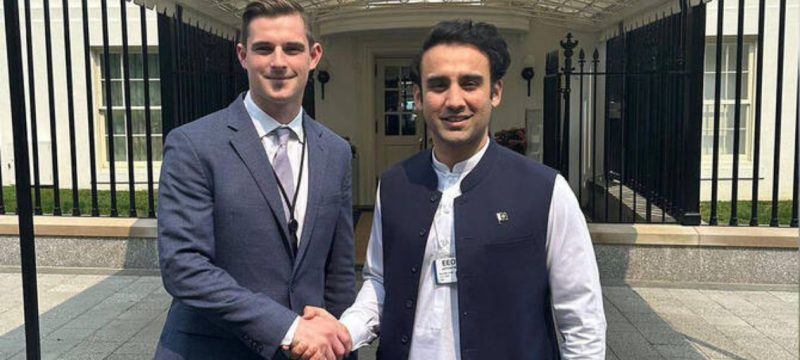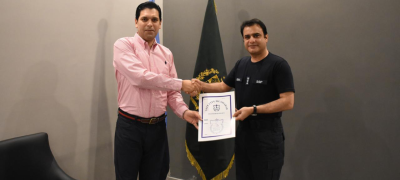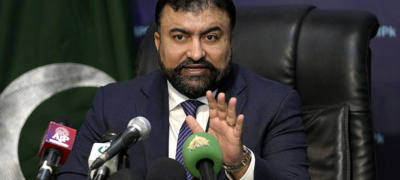Minister of State for Crypto and Blockchain, Bilal bin Saqib, held a high-level meeting with Robert ‘Bo’ Hines, Executive Director of the Trump Digital Assets Council, to explore stronger collaboration between Pakistan and the United States in the dynamic realm of digital assets.
The meeting, held at the White House, featured comprehensive discussions on major topics such as Bitcoin, cryptocurrency mining, decentralized networks, and frameworks for digital finance.
Read more: State Bank of Pakistan Reverses Crypto Ban, Moves to Regulate Digital Currency
During the meeting, Bilal bin Saqib outlined Pakistan’s vision to take a leadership role among developing nations in the digital asset space. He stated that Pakistan is actively working on building a future-focused digital infrastructure, which includes creating a national Bitcoin reserve, setting up specialized zones for crypto mining, and enhancing AI data capabilities.
He stressed the need for global partnerships to drive modernization across digital economies. “This isn’t about playing catch-up — it’s about making Pakistan a digital finance pioneer on the world stage,” he remarked.
Both sides agreed on the importance of deepening cooperation in blockchain innovation, crypto regulatory frameworks, and digital economic policies. The Trump Digital Assets Council expressed its appreciation for Pakistan’s enthusiastic involvement and forward-looking initiatives.
However, Pakistan’s digital finance drive has also drawn concern from the International Monetary Fund (IMF). The IMF has voiced serious apprehensions over Pakistan’s recent decision to dedicate 2,000 megawatts of electricity for cryptocurrency mining and AI data centers, especially as sensitive budget discussions between the two sides continue.
This concern followed Pakistan’s unveiling of its first national Bitcoin reserve during the Bitcoin Vegas 2025 conference — a major step reflecting its new strategic direction in the global digital economy.
Addressing attendees at the event, Bilal bin Saqib announced the launch of Pakistan’s official Bitcoin wallet and significant energy commitments to support digital finance initiatives.
“Our young population is not just online — they are active participants in blockchain systems,” he said. “With over 40 million crypto wallets and an average age of 23, Pakistan is now gaining recognition for its potential and digital future.”





